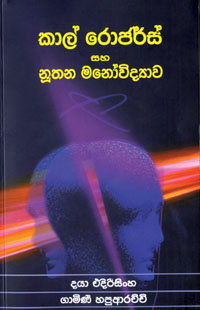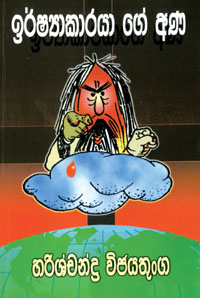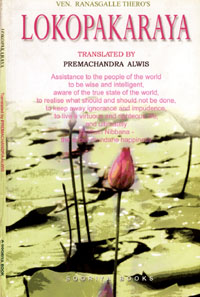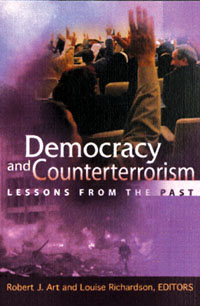
Useful publication on psychology
Carl Rogers saha Nuthana Manovidyava (Carl Rogers and Modern
Psychology)
Editors: Daya Edirisinghe and Gamini Hapuarachchi
Wathma Publishers, Dehiwala, 2006
152 pages, Rs. 280
Review: Padmal de SILVA, University of London
 PSYCHOLOGY:
Psychology is a well established academic discipline, and now enjoys an
important place in the âmap of knowledgeâ. It is one of the most popular
subjects in universities in many parts of the world. PSYCHOLOGY:
Psychology is a well established academic discipline, and now enjoys an
important place in the âmap of knowledgeâ. It is one of the most popular
subjects in universities in many parts of the world.
The applications of psychology now pervade most areas of life, and
the rapid growth of professional disciplines, such as clinical
psychology, reflect the formalization of these applications.
Books on psychology written in Sinhala are still rare, despite the
fact that the subject has been taught in the universities of Sri Lanka
for some time. Psychology was initially taught as part of other
subjects, such as education, sociology and philosophy.
In more recent years, it has begun to be taught as an independent
subject. This is a major development, and one that has led to the need
for more books and other reading materials in the national languages.
Professor Daya Edirisinghe and his colleagues have published several
books over the last decade or so in this area.
In their endeavours to make reading material in psychology available
to the students of the subject as well as to the interested lay readers
in Sinhala, they have covered many areas of this discipline.
Collective effort
The present book is a collective effort by four members of the
Philosophy Department of the Kelaniya University - the two editors, plus
Tulsi Alahakone and Muditha Karunasinghe.
It gives an introductory account of some areas of modern psychology.
The contents are organised under eight chapters, which are summarized
below.
The first chapter is a discussion of the all-important question âWhat
is psychology? The nature of the subject, and how it relates to other
disciplines, are considered here.
In chapter two, an account is given of the historical development of
psychology. The history of psychology is a fascinating affair, with
various milestones, major individual contributions and key trends.
This discussion is continued in the third chapter, which deals with
the main theories in the field, and consideration of some key concepts.
Chapter four concentrates of learning, a major content area of
psychology.
In the following chapter an account is given of Carl Rogersâs
contribution to the field, with special focus on his humanistic approach
to psychology.
Chapter six deals with two specific topics: parapsychology and the
concept of super-consciousness.
In chapter seven, a somewhat detailed account of counselling
psychology is provided, covering different approaches and formats.
The final chapter is headed âContemporary applied psychologyâ and
focuses on four areas: organisational psychology, feminist psychology,
environmental psychology, and sports psychology.
Modern life
As can be seen from the above, the book covers a variety of topics in
psychology. It is not a comprehensive text on the subject, and does not
claim to be one.
It does, however, address a range of topics that are of interest to
the present-day student, and are relevant to modern life.
The inclusion of a brief section on environmental psychology is
laudable, as environmental issues are rapidly taking centre stage in
todayâs world concerns. The book also gives, at the end, a valuable
glossary of technical terms. Nearly two hundred and fifty terms are
included.
I welcome this addition to the still small literature on psychology
in Sinhala The editors and their colleagues deserve the readersâ
gratitude for this contribution.
There are some minor flaws, which should not detract from the overall
value of the work. I must, however, confess to a sense of puzzlement -
to put it mildly - about the title of the book.
The title leads one to expect a work that deals with Carl Rogersâs
contribution to, or influence on, modern psychology. The book does not
attempt this; it is instead a series of chapters on various key aspects
of the field, including one on Rogers and his work.
So the title is misleading, and I am sure the editors will not
dispute this. It is not clear why the editors chose this title. This
criticism apart, the book is a most welcome publication and is likely to
be widely read.
------------------
Thought-provoking book on religion
Irshiyakarayage Ana (Orders of the Jealous Personality)
Author: Dr. Harischandra Wijayatunga
Publishers: S. Godage and Bros, Colombo 10
Price: Rs. 350
Review: W.T.A. Leslie FERNANDO
 CHRISTIANITY:
Today Christianity is at cross-roads. There are over 20,000 sects of
Christians all over the world who vie with each other claiming that only
their sect presents the true teachings of Christ. CHRISTIANITY:
Today Christianity is at cross-roads. There are over 20,000 sects of
Christians all over the world who vie with each other claiming that only
their sect presents the true teachings of Christ.
In the West where you get most of the Christians, the religion is not
taken seriously. Even in Catholic countries in Europe only around 10%
seem to practise the religion and churches are almost empty even on
Sundays.
Besides morality is at a very low ebb in the Christian West. Although
Christianity preaches âWhat God has joined together let no man put it
asunder,â there are more divorces in the West than in this part of the
world.
Married couples living in adultery are not taken seriously at all in
Europe. Even in Catholic countries you get swimming pools where both men
and women step into them fully naked.
In the meantime there are various fundamental sects that go from
house to house in Sri Lanka with a Bible in hand and try to convert
people to Christianity at any cost.
There are some Catholic clergy who place pictures of Christ on one
side and that of Lord Buddha on the other and preach that Buddhism and
Christianity as parallel religions.
In recent years at Vesak statues of Lord Buddha are placed in church
premises, Bhikkhus preach Bana, Vesak Bhakti Gee are recited and Vesak
lanterns are lit in Catholic churches.
In this background, the book âIrshiyakarayage Anaâ or orders of the
jealous personality by Dr. Harischnadra Wijayatunga is most informative,
instructive and revealing.
Buddhists
At the outset the author confesses that people are entitled to have
their beliefs and does not want to condemn them for that right. He
explains that his endeavour is to present the true facts for the benefit
of people specially to the Buddhists.
The author expresses that the almighty God in the Bible is a jealous
personality as the title of the book implies.
According to the Old Testament the 2nd commandment of God in the
version of the Bible approved by King James is âI am the Lord thy God am
a jealous Godâ. But what is now found in the Bible is âBecause I am the
Lord your God, I tolerate no rivalsâ.
He illustrates his point by quoting further from the Bible. In the
Old Testament God has ordered to kill even close relatives who entice
people to worship other Gods by stoning them to death. (Deuteronomy
13-9,10). Christ in the New Testament has said âDo not think I have come
to bring peace on earth. I have not come to bring peace but a sword
...... He who loves father or mother more than me is not worthy of me,
and he who loves son or daughter more than me is not worthy of meâ.
(Matthew 10-34 to 38).
There are some who put forward a theory that Christ had lived in
India for some time and was influenced by Buddhism.
The author completely dismisses this theory. On the contrary he
subscribes to the school of thought that there was no person called
Christ who lived in this world. This view looks far-fetched on the face
of it. However the arguments adduced by the author in this respect could
not be lightly brushed aside.
Contradictions
Firstly the author draws attention to the major contradictions in the
four Gospels. Next he finds that according to the Gospels Christ was an
extraordinary person born of virgin, who performed miracles, walked on
the sea, raised the dead to life, brought about a social revolution and
had a following.
According to the Gospel of Matthew, at the death of Christ so many
dead had come out of tombs.
The author queries why the life of Christ is not mentioned in the
records of contemporary historians and eminent men in Rome, Greece and
Palestine. He gives a long list of such intellectuals.
The author concedes that Christ is mentioned in the record of one
Jewish priest called Josephus Ben Matthias who was born five years after
the death of Christ. But here the reference is limited to one paragraph
about miracles and resurrection of Christ.
The author wonders if Christ had risen from the death why he remained
a Jewish priest without being a follower of Christ. According to the
author it was a later interpolation by one Eussbeous who advocated to
lie for religion.
Long before Christ there have been pagan Gods like Osiris of Egypt,
Dionysus of Greece, Adonis of Syria, Bakkhus of Italy, and De Mithras of
Persia who are said to have risen from the dead.
The author contends that this phenomenon has been developed to create
the story of Christ as well. as the Romans were great law-givers the
author doubts.
Whether a Roman Governor could have condemned a person to death, when
he found him to be innocent merely because people demanded on the
instigation of Chief Priests.
Old Testament
According to the author the followers of the Old testament have
entered into a covenant to destroy other religions. The first
commandment of God is âWorship no God but meâ.
In the New Testament Christ has commanded âGo therefore and make
disciples of all nations, baptizing them in the name of the Father and
of the Son and of the Holy Spiritâ (Mattew 28-19,20). As such Christians
are bound to convert others to Christianity.
He accuses that the theory propounded by some multi-religious forums
that all religions are similar or have a common factor is a ploy to
mislead Buddhists and Hindus with a hidden agenda.
Finally the author draws attention to a remark made by Dr. Rowan
Williams, the Archbishop of Cantubury who has a following of over 70
million in the Church of England as it was reported in The âIslandâ on
January 03, 2005.
When people were devastated by the Tsunami he had expressed to the
âDaily Telegraphâ - âHow can you believe in a God who permits suffering
in this scaleâ, If an Archbishop feels so what could Buddhists expect
from an Almighty God, queries the author.
As a Roman Catholic believing in God and the Holy Catholic and
Apostolic Church I cannot endorse some of the views expressed in this
book. Our position is that human nature is such our mind cannot
apprehend ways and doings of God.
Nevertheless there are so many persons and organizations funded by
foreign agencies who want to mix religions saying all are the same. This
would lead to the destruction of all religions. In that sense I welcome
this book.
Although this book deals with philosophical aspects, it is presented
in readable language in the inimitable style of Dr. Harischandra
Wijayatunga and it provides fascinating reading.
It is neatly printed in glossy paper and provides some relevant
pictures as well. All those who are interested in religion should read
this book.
-------------------
Book of wisdom for everybody
Lokopakaraya
Author: Ven. Ranasgalle Thera
Translator: Premachandra Alwis
Sooriya Publishers, Colombo 10.
75 pp Price Rs. 200
Review: R. S. KARUNARATNE
 WISDOM:
Ven. Ranasgalle Theraâs Lokopakaraya which helped people over the years
to be aware of the state of the world has been translated by
Premachandra Alwis. WISDOM:
Ven. Ranasgalle Theraâs Lokopakaraya which helped people over the years
to be aware of the state of the world has been translated by
Premachandra Alwis.
The book running into just 75 pages advises people what should be
done and what should not be done to live a meaningful life.
Ven. Ranasgalle Thera is supposed to have lived in the Thotagamuwe
Vihara, near Hikkaduwa. The book was written during the Jayewardenepura
(Kotte) literary period (1410-1554 AD).
This is the first ever English translation of the original Sinhala
stanzas. The book gives both the Sinhala and English versions.
Lokopakaraya is a remarkable literary work which is endowed with a
variety of similies and metaphors. Although the original work consisted
of two-lined stanzas, the translator has thought it fit to write them in
prose style, maintaining the numerical order of the original.
Here are a few gems culled from the translated text:
* âTo explain a perfect science to an ignorant is nothing but giving
a mirror to a blind to see his face.â
* âThose who are in association with gamblers, performers,
prostitutes, robbers, drunkards and the likes will definitely perish.â
* âViolent and sinful persons go to hell after their death; just as a
house merges in the darkness once the lamps is blown out.â
Taken as a whole, Lokopakaraya is a handy guide to lead a
trouble-free life in this world. Some typographical errors could have
been easily eliminated.
Books of this nature should be free from errors because readers use
them frequently to become better human beings.
----------------
Democracy and counterterrorism
Edited by Robert J. Art and Louise Richardson
 POLITICS:
Democracy and Counterterrorism offers unparalleled breadth in its
comparative study of the policies, strategies, and instruments employed
in the fight against terrorism. POLITICS:
Democracy and Counterterrorism offers unparalleled breadth in its
comparative study of the policies, strategies, and instruments employed
in the fight against terrorism.
The distinguished contributors - some scholars, some practitioners,
and all renowned experts - examine no fewer than fourteen cases,
featuring thirteen states and sixteen major terrorist groups.
Each case study includes a brief overview, a detailed analysis of the
policies and techniques that the government employed, and an assessment
of which measures proved most effective and instructive.
The substantial conclusion draws together common threads from the
individual cases and asks what lessons their collective experience can
offer to the democracies now battling al Qaeda and the global jihadists.
Among the answers sure to interest policymakers as well as academics
is that the constraints within which democracies must fight terrorism
are actually a source of strength; democratic governments that seek
simply to obliterate terrorism by force usually succeed only in making
their problems worse.
The book is available at United Institute of Peace Press P.O. Box 605
Herndon, VA 20172 Readers may also visit their bookshop http://bookstore.usip.org |

